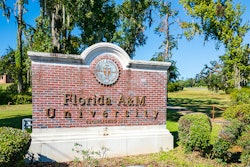“You’ve got to know the shape of the river perfectly. It is all
there is left to steer by on a very dark night.” So begins Derek Bok
and Dr. William Bowen’s new book, The Shape of the River, one of the
first books to demonstrate the power of race-sensitive admissions
practices. The former presidents of Harvard and Princeton universities
evoke the image of Mississippi riverboat pilots winding through fogs,
slow eddies, and hidden bluffs.
Perhaps that is what 1998 felt like to those who fought to provide
access to Blacks in higher education only to watch in dismay as 30
years of progress was dismantled by successful legal — and voter —
challenges to affirmative action. Those challenges began, of course,
two years ago with California’s Proposition 209, which slowed the
number of Blacks and Latinos admitted to the elite University of
California campuses to a trickle.
This year, the movement gathered momentum as the battleground
shifted to Washington State. Although affirmative action supporters
appeared more organized and were better financed than their peers in
California had been, opponents again won a decisive victory when voters
passed Initiative 200.
Brusied and battered, supporters of affirmative action were again
surprised when the struggle that has long been waged on university and
graduate school turf shifted to the virgin terrain of public school
districts. Students and
parents in Boston and Virginia — among other places — filed
lawsuits saying they were unfairly denied admission to well-respected
schools. In Boston late last month, a three-judge panel struck down the
affirmative action policy at Boston Latin School, the city’s most
prestigious high school.
By the end of the year it was clear to many that the landscape had
changed and that new strategies are needed to continue to ensure
minority students access to the nation’s colleges and universities.
“Those of us who are proponents [of affirmative action] have to
clarify the terms of the debate and try to make it clear that it is not
a question of preferences or of righting wrongs that happened in the
mid-1800s,” says Margaret Montoya, a professor of law at the University
of New Mexico’s School of Law.














